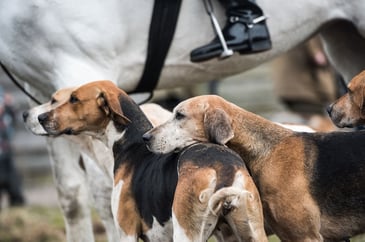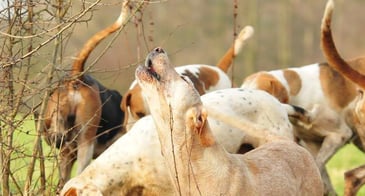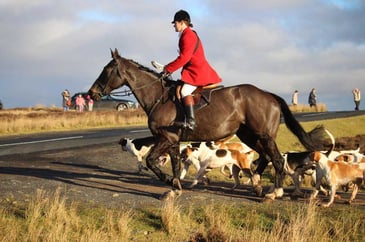Countryside Alliance
The Countryside Alliance is a political campaigning organisation, dedicated to championing and preserving the rich heritage, natural beauty, and vibrant communities that define the countryside.
As a membership organisation, we are are committed to promoting and protecting the rural way of life for generations to come, in line with our charitable objects and for public benefit.

Countryside Alliance
The Countryside Alliance is a political campaigning organisation, dedicated to championing and preserving the rich heritage, natural beauty, and vibrant communities that define the countryside.
As a membership organisation, we are are committed to promoting and protecting the rural way of life for generations to come, in line with our charitable objects and for public benefit.

Countryside Alliance
The Countryside Alliance is a political campaigning organisation, dedicated to championing and preserving the rich heritage, natural beauty, and vibrant communities that define the countryside.
As a membership organisation, we are are committed to promoting and protecting the rural way of life for generations to come, in line with our charitable objects and for public benefit.


Our mission.
Our mission is rooted in the belief that the countryside is a vital part of our nation’s identity, offering not only a way of life but also a haven for diverse wildlife, agricultural innovation, and traditional practices. At the heart of our work is the protection and promotion of rural pursuits, which are an integral aspect of rural culture and conservation.
We advocate for the responsible stewardship of the land and wildlife, recognising the importance of sustainable practices that balance the needs of people and nature. Through education, advocacy, and active engagement with policymakers, we seek to safeguard the rights of those who live and work in the countryside, while also fostering a deeper understanding of rural life among the wider public.

Our impact.
We believe that rural communities are the backbone of the countryside, and our mission includes supporting the economic, social, and cultural vitality of these areas. Whether through promoting local businesses, enhancing access to essential services, or celebrating rural traditions, we are committed to ensuring that these communities remain resilient and prosperous.
The Countryside Alliance is a voice for those who may not always be heard, advocating for the interests of all those whose livelihoods are tied to the land. We strive to bridge the gap between urban and rural perspectives, fostering mutual respect and understanding. In all that we do, we are guided by a deep respect for the countryside and a steadfast commitment to its preservation.
Together with our members, partners, and supporters, we work tirelessly to protect the future of rural areas, ensuring that they remain a vibrant and essential part of our national fabric.
OUR CAMPAIGNS
The Countryside Alliance Foundation
The Countryside Alliance’s work has enormous benefits for the public, including our members. By delivering that work through the Foundation we will ensure recognition of that public benefit and receive significant additional income from subscriptions and donations as a result.
No. Charities are allowed to engage in campaigning and political activity that aligns with their charitable goals. The Charity Commission’s guidance states that “campaigning, advocacy and political activity are all legitimate and valuable activities for charities to undertake”. Charities cannot engage in party political campaigning, but the Countryside Alliance has always been strictly apolitical and has never campaigned for any political party.
The Countryside Alliance Foundation's charitable objects are:
-
To promote the conservation, protection and improvement of the physical and natural environment by supporting access and conservation projects and programmes that protect features of wildlife, flora and fauna in the British countryside generally and responsible and sustainable use of these environments.
-
To promote agriculture for the public benefit.
-
To educate the public in subjects pertaining to the conservation, protection and enjoyment of the countryside.
-
The promotion of sustainable development for the benefit of the public by:
-
The preservation, conservation and the protection of the environment and the prudent use of natural resources;
-
The promotion of sustainable means of achieving economic growth and regeneration; and
-
Conducting or commissioning research and publishing the results of such research. Sustainable development means "development that meets the needs of the present without compromising the ability of future generations to meet their own needs".
-
-
The relief of poverty and the improvement of conditions of life in socially and economically disadvantaged communities.
-
The promotion of community participation in healthy recreation in particular by the provision of facilities for and the organising of outdoor activities that are capable of promoting physical and mental health and wellbeing.
You can also see them here.
Yes, the benefits to members will not change at all. Many membership organisations from the British Horse Society to the RSPB are charities. The benefits you receive, such as insurance, are incidental to the work we do and the value of those benefits are well below the threshold laid down by the Charity Commission.
Trail hunting, exempt hunting and other legal hunting have a range of environmental, social and economic benefits. Hunting promotes the conservation of the landscape and environment, encourages social interaction in isolated rural communities and supports jobs and businesses in rural areas. Promoting these benefits and educating the public about them falls squarely within the charitable objects of The Countryside Alliance Foundation.
1. What is the Countryside Alliance?
The Countryside Alliance is a charity dedicated to promoting the rural way of life, advocating for rural communities, and supporting countryside activities.
2. What are the main objectives of the Countryside Alliance?
The main objectives include promoting the economic and social benefits of rural life, supporting sustainable countryside activities, and advocating for balanced animal welfare.
3. Can the Countryside Alliance campaign to repeal the Hunting Act?
Yes, the Countryside Alliance can campaign to repeal the Hunting Act as long as it aligns with its charitable objects, provides a public benefit, and complies with the Charity Commission’s regulations on political activities.
4. How does campaigning to repeal the Hunting Act align with the charity’s objectives?
Campaigning to repeal the Hunting Act aligns with our objectives by promoting the rural way of life and advocating for balanced animal welfare, ensuring that the laws governing countryside activities are fair and beneficial to rural communities.
5. What is the Charity Commission’s stance on political activities by charities?
The Charity Commission allows charities to engage in political activities as long as these activities support the delivery of the charity’s purposes and are not the charity’s primary focus. Campaigns must align with the charity’s objectives and provide a public benefit.
6. How does the Countryside Alliance ensure its campaigns comply with legal requirements?
The Countryside Alliance ensures compliance by adhering to the Charity Commission’s guidelines, focusing on activities that align with our charitable objects, and demonstrating the public benefit of our campaigns.
7. What are some examples of the Countryside Alliance’s work?
Examples include campaigns to support rural businesses, initiatives to improve rural broadband access, advocacy for countryside sports, and efforts to balance animal welfare with the interests of rural communities.
8. How can I get involved with the Countryside Alliance?
You can get involved by becoming a member, volunteering, participating in our campaigns, or donating to support our work. Visit our website for more information on how to join and support the Countryside Alliance.
9. Where can I find more information about the Countryside Alliance’s campaigns and activities?
More information about our campaigns and activities can be found on our campaign pages where you can also sign up for our newsletter and follow us on social media for the latest updates.
Game shooting and shooting for wildlife management have a range of environmental, social and economic benefits. Shooting promotes the conservation of the landscape and environment, encourages social interaction in isolated rural communities and supports jobs and businesses in rural areas. Promoting these benefits and educating the public about them falls squarely within the charitable objects of The Countryside Alliance Foundation.
The Countryside Alliance's campaign for the 2024 General Election focuses on several key areas:
-
Tackling Rural Crime: Advocating for better police prioritization and support for rural crime teams.
-
Supporting Farmers and Producers: Promoting British produce in public procurement and rejecting a meat tax.
-
Wildlife Management: Ensuring evidence-based laws and supporting trail hunting, shooting, and fishing.
-
Improving Rural Connectivity: Enhancing broadband, transport, and renewable energy infrastructure.
For more details, you can visit our General Election 2024 page.
The Countryside Alliance Foundation is run by a Board of Trustees and there is not an elected element. There is, however, a new Advisory Council of leading figures chosen for their experience in rural issues, politics and the media. This influential group will ensure that all the voices of our members, the countryside and those beyond it are heard.
Some years ago the Countryside Alliance applied to become a charity and the Charity Commission concluded that whilst most of its work was in the public interest, not all of it was. The Alliance’s work in advocating for the countryside has continued to evolve and all the work that will be transferred is now both for the public interests and within the objects of the Foundation.
So, why transition now? Over the past 18 months, we've invested heavily in upgrading our platforms and data management systems. These improvements now allow us to meet the stringent requirements for charity status, ensuring better financial transparency and integrity.
What benefits will this bring? As a charity, we will adhere to strict financial reporting standards, providing detailed accounts of income, expenditure, and impact. This fosters greater trust among supporters and stakeholders, ensuring every pound donated is used effectively.
How does this affect our operations? Transitioning to charity status reinforces our commitment to high ethical standards, allowing for greater oversight and accountability. This helps maintain public confidence and ensures all activities align with our core mission and values.
What future benefits are expected? Charity status opens new funding avenues, including grants and tax reliefs, ensuring the sustainability of our initiatives and amplifying our impact. This enables us to provide even more robust support for rural communities.
In summary: This transition marks a significant milestone, reflecting our dedication to transparency and integrity. It promises enhanced accountability, greater public trust, and a sustainable future for our work in preserving and promoting the countryside.
The Countryside Alliance will allocate the additional funds from Gift Aid to enhance several key areas, providing greater benefits to rural communities. Here’s how these funds will be utilised:
-
Strengthening Rural Policy Advocacy:
- Policy Research and Development: Increasing efforts in researching rural issues to develop comprehensive policies that address the unique challenges faced by rural communities.
- Lobbying and Advocacy: Enhancing engagement with policymakers to ensure rural concerns are prioritised in legislative agendas, including issues related to farming, rural businesses, and community services.
- Community Outreach: Organising events and forums to gather input from rural residents and ensure their voices are heard in policy discussions.
-
Expanding Fishing for Schools:
- Programme Expansion: Extending the reach of the Fishing for Schools programme to more regions, allowing more students to benefit from this unique educational initiative.
- Resources and Equipment: Investing in high-quality fishing equipment and educational materials to improve the learning experience for students.
- Training and Support: Providing additional training for instructors and support staff to ensure the highest standards of education and safety in the programme.
-
Enhancing Public Benefit Programmes:
- Community Projects: Funding a variety of projects aimed at improving the quality of life in rural areas, such as environmental conservation efforts, community centres, and local healthcare initiatives.
- Educational Outreach: Developing educational programmes that raise awareness about rural issues and the importance of countryside preservation among the general public.
- Cultural Initiatives: Supporting rural cultural heritage projects that celebrate and preserve the traditions and history of countryside communities.
By directing the additional funds from GiftAid towards these areas, the Countryside Alliance aims to create significant and lasting benefits for rural communities, ensuring they thrive and are well-represented in national policy discussions. This comprehensive approach not only addresses immediate needs but also invests in the long-term sustainability and vitality of rural life.
1. How does Gift Aid work?
Gift Aid is a UK tax incentive that allows charities to reclaim tax on donations made by UK taxpayers. This means that for every £1 you donate, the charity can claim an additional 25p from HM Revenue and Customs (HMRC), making your donation go further.
2. What do I need to do to use Gift Aid?
You need to complete a Gift Aid declaration form, confirming that you are a UK taxpayer and have paid at least as much Income Tax or Capital Gains Tax as the charity will reclaim.
3. How does Gift Aid benefit higher rate taxpayers?
If you are a higher rate taxpayer (40%), you can claim the difference between the higher rate and the basic rate (20%) on the gross value of your donation. You do this through your Self Assessment tax return. For instance, on a £100 donation (grossed up to £125 with Gift Aid), you can claim back £25, reducing the net cost to you to £75.
4. How does Gift Aid benefit additional rate taxpayers?
If you are an additional rate taxpayer (45%), you can claim the difference between the additional rate and the basic rate (25%) on the gross value of your donation. For a £100 donation (grossed up to £125 with Gift Aid), you can claim back £31.25, reducing the net cost to you to £68.75.
5. Can companies benefit from making donations to charities?
Yes, companies can deduct the value of their donations to charities from their total business profits before calculating Corporation Tax. This can include donations of money, equipment, trading stock, land, property, or even employees on secondment.
6. How does Corporation Tax relief work for donations?
If a company donates £1,000 to a charity, it can reduce its taxable profits by the same amount. With the current Corporation Tax rate at 19%, this could save the company £190 in tax, making the net cost of the donation £810.
7. What records do companies need to keep for charitable donations?
Companies should keep accurate records of all charitable donations made. This includes the amount donated, the date, and the recipient charity. These records are necessary to ensure the donations are correctly deducted when calculating taxable profits.
8. What are the benefits of donating to the Countryside Alliance as a taxpayer?
-
For individuals: You can boost the value of your donation through Gift Aid, and if you are a higher or additional rate taxpayer, you can also benefit from personal tax relief.
-
For companies: Donations can reduce your taxable profits, offering a direct tax saving.
9. How do I claim tax relief on my charitable donations?
If you are an individual, you claim tax relief through your Self Assessment tax return. If you are a company, you deduct the donations when calculating your taxable profits.
The transition allows for a broader deployment of legacy funds across all Countryside Alliance activities. The updated TCAF Objects, approved by the Charities Commission, enable these funds to support a wider range of initiatives, delivering greater public benefit compared to the previous, more restrictive framework.
What are the benefits of leaving a legacy to TCAF?
Leaving a legacy to TCAF ensures that your contribution can support diverse projects such as conservation, rural education, community support, and advocacy for rural issues. This expanded scope ensures that your legacy has a significant and lasting impact on rural communities, reflecting your personal values and interests.
How will my legacy be used?
With the updated TCAF Objects, your legacy can be utilised across a broader range of Countryside Alliance activities. This flexibility allows for the funds to be directed towards areas of urgent need, innovative projects, and long-term initiatives that promise substantial public benefit.
Can I specify how my legacy should be used?
Yes, the broader scope of the updated TCAF Objects allows for more personalised engagement with donors. You can specify particular initiatives or areas that you are passionate about, ensuring that your legacy aligns with your personal values and interests.
How does TCAF ensure transparency and accountability in the use of legacy funds?
TCAF is committed to transparency and accountability. The updated Objects provide greater clarity on how legacy funds are allocated and utilised. Donors will receive detailed reports on the impact of their contributions, ensuring confidence that their legacies are making a meaningful difference.
Why is now a good time to consider leaving a legacy to TCAF?
The transition to TCAF and the approval of the updated Objects by the Charities Commission mark a pivotal moment for the Countryside Alliance. This change enhances the flexibility and impact of legacy funds, making it an ideal time to leave a legacy that supports a vibrant and resilient future for rural communities.
How do I leave a legacy to TCAF?
Leaving a legacy to TCAF can be done through your will. You can specify the Countryside Alliance Foundation as a beneficiary, detailing any particular initiatives or areas you wish to support. It is advisable to consult with a solicitor to ensure that your wishes are clearly outlined and legally binding.
By leaving a legacy to TCAF, you can help ensure the long-term sustainability and positive impact of the Countryside Alliance’s mission, supporting rural communities in diverse and meaningful ways.
Yes, if you are a UK taxpayer and have paid enough Income Tax and/or Capital Gains Tax to cover the amount of Gift Aid claimed on all your donations in that tax year, you can claim Gift Aid on your membership.
When you first sign up or renew your membership, you’ll be given the option to tick a box or fill out a Gift Aid declaration form. This form allows us to reclaim Gift Aid on your membership fees for the past four years, as well as for future payments.
To opt-in for Gift Aid, please click here.
To claim Gift Aid, you simply need to provide your full name, home address, and confirm that you are a UK taxpayer. There’s no need to send any financial documents.
Yes, you can complete a Gift Aid declaration at any time. Once signed, we can claim Gift Aid on any eligible membership payments you've made in the last four years.
This is a great way to increase your contribution retrospectively.
No, once you’ve signed a Gift Aid declaration, it remains valid unless you notify us of any changes. However, if your tax status changes and you are no longer eligible for Gift Aid, you should inform us immediately.
For every £1 you pay in membership fees, we can claim an additional 25p from the government. Over four years, this can significantly increase the value of your contribution.
If your circumstances change and you no longer pay enough tax to cover the Gift Aid claimed, please let us know so we can stop claiming on your behalf. It’s your responsibility to ensure that you’ve paid enough tax to cover the Gift Aid amount.
Yes, if you pay a higher rate of tax, you can claim the difference between the higher rate of tax and the basic rate of tax on your donation. You can do this either through your Self Assessment tax return or by asking HMRC to adjust your tax code.
Please note that the Countryside Alliance is a trading name of The Countryside Alliance Foundation, and any cheques should be made payable to The Countryside Alliance Foundation.
If you have any other questions or need further assistance, please contact our Customer Service Team at info@countryside-alliance.org or call 0207 840 9300 for more information.

Support us by becoming a member.
Become a member today and be a part of one of the most influential campaigning organisations in the countryside. By joining us, you will be helping to promote and protect the countryside, support rural communities, and promote fieldsports. Stand with us to ensure the countryside thrives for future generations.
Access to experts shaping political party policies
Insurance cover for hunting, shooting, fishing and many of your favourite country pursuits needs
Our membership magazine, 'My Countryside', filled with expert insights and updates
The Rural Charter
KEY RESOURCES
The general election this year is critical. It has been reported that ‘strengthening’ the Hunting Act, banning grouse shooting, restricting game farming, increasing the regulation of gun ownership, and creating a ‘right to roam’ will all be on the political agenda. Please donate and help us defend our way of life.
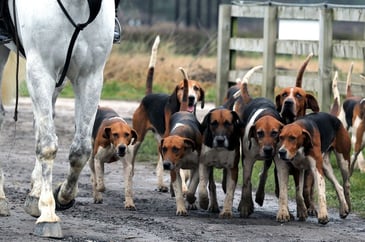

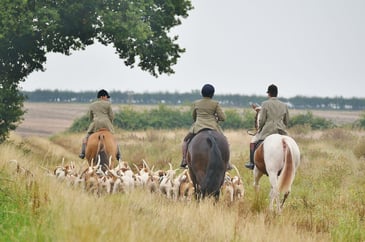
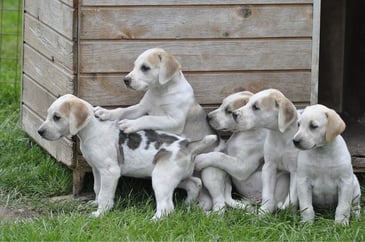

%201400x933px.jpg?width=365&name=Rural%20crime%20team%20(Shutterstock)%201400x933px.jpg)
